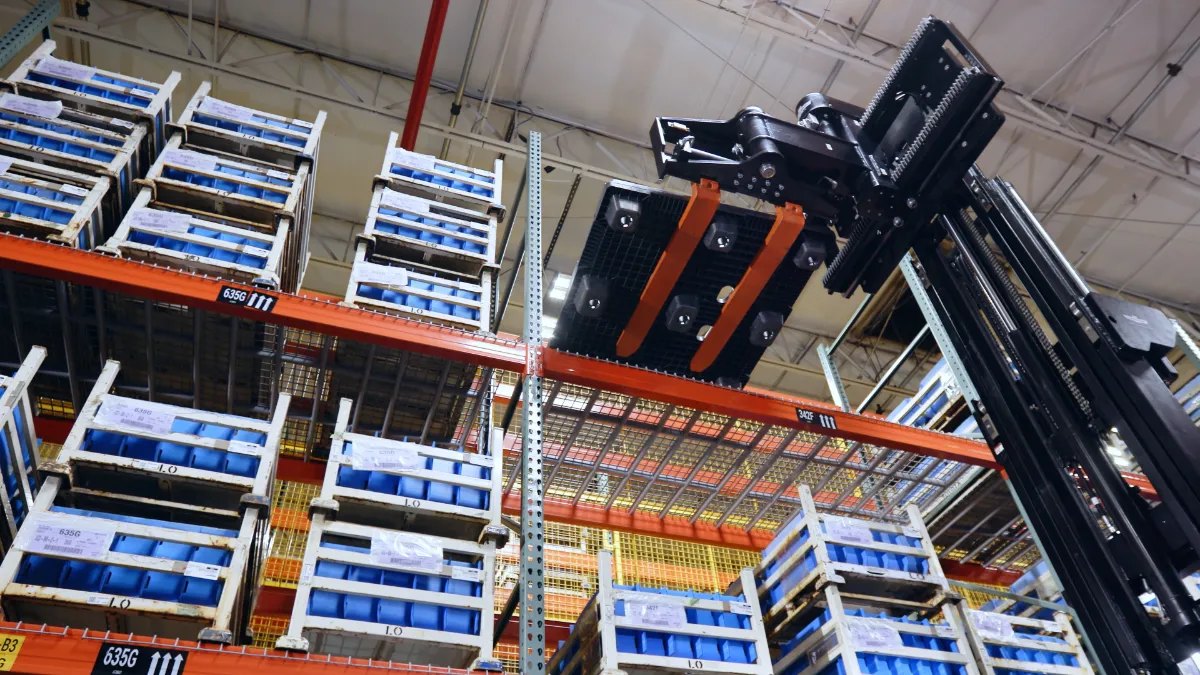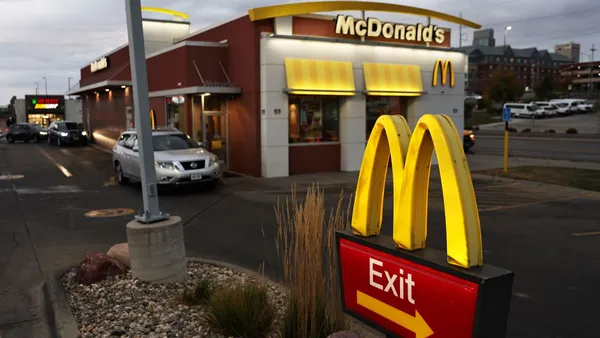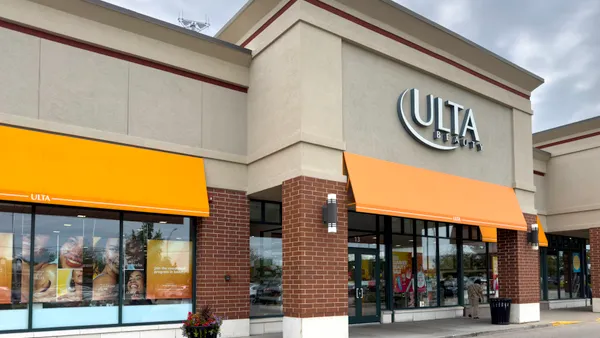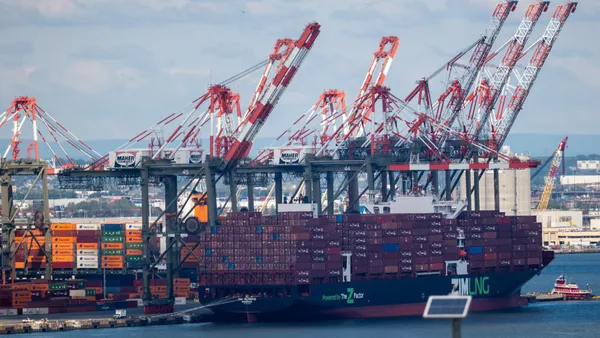Dive Brief:
- A lack of pallet availability and rising pallet prices add to the stress of already squeezed supply chains, the United Fresh Produce Association said in an emailed notice.
- Pallet costs are up 400%, according to the association, due to several factors, including high demand and rising lumber costs.
- Repositioning the pallets is also a challenge as trucking capacity is strained. Not enough trucks and drivers are available to move the pallets from one location to another, the group said.
Dive Insight:
An uptick in consumer spending and inventory restocking requires access to the equipment that forms the backbone of supply chains — from containers to chassis to pallets.
A variety of factors squeezed supply amid growing demand, which pushed pallet prices to record highs. In April, the Bureau of Labor Statistics' Producer Price Index reached its highest level on record.
Wood pallet costs soar
Demand for pallets stems from retailers and grocers restocking their distribution and fulfillment centers, as consumers continue to spend on goods rather than services. Many firms have also built up buffer inventory, as a hedge against the stockouts that plagued CPG and retail supply chains last year.
Pallet suppliers and manufacturers — including Brambles, the parent company of CHEP — noted elevated demand from customers as they raised inventory levels.
"Since the beginning of the pandemic, the wood pallet industry has played an essential role in enabling our supply chain partners to meet the increased demand for products," Brent J. McClendon, president and CEO of the National Wooden Pallet & Container Association, said in an email.
Pallets may be circulating in the supply chain, but not necessarily in the right place at the right time. Truck capacity must be available to shift the pallets around, yet the market has been tight. Data from DAT shows nearly eight loads requested for every available dry van truck in early May.
The United Fresh Produce Association said dwell time is up for non-perishable inventory, which indicates pallets may be sitting longer at warehouses or loading docks.
That can hinder suppliers' ability to transport goods. The association said one pallet supplier told a farmer it is not taking on new customers because it cannot fill existing consumer demand. The timing is especially problematic as many states are approaching the height of their growing seasons.
Pallets are also constrained at their supply level.
"We understand US sawmills are working hard to increase capacity," McClendon said. Many sawmills closed or reduced operations during the earlier days of the pandemic.
Now, pallet manufacturers are competing for raw materials with the home construction industry, which has boomed in recent months. Lumber is in short supply, and costs for the material are "abnormally high," Brambles CFO Nessa O'Sullivan said on an earnings call in February. "We're expecting that to continue into the second half," she said in reference to lumber prices.
The Institute for Supply Management also noted lumber and wood pallets increasing in price due to product scarcity.
One alternative to the wood pallets facing high material costs and supply constraints is the use of plastic pallets. Brambles has been trialing the plastic pallets with Costco, to test durability, dwell times and technologies such as RFID, Brambles CEO Graham Chipchase said on the call.
"But the other piece of that is also the premium that our customers, the manufacturers will have to bear," Chipchase said. "Because obviously, a plastic pallet is three times more expensive than the wooden one."
The United Fresh Produce Association said it expects wood pallet shortages to continue for months, "perhaps for the balance of 2021."















